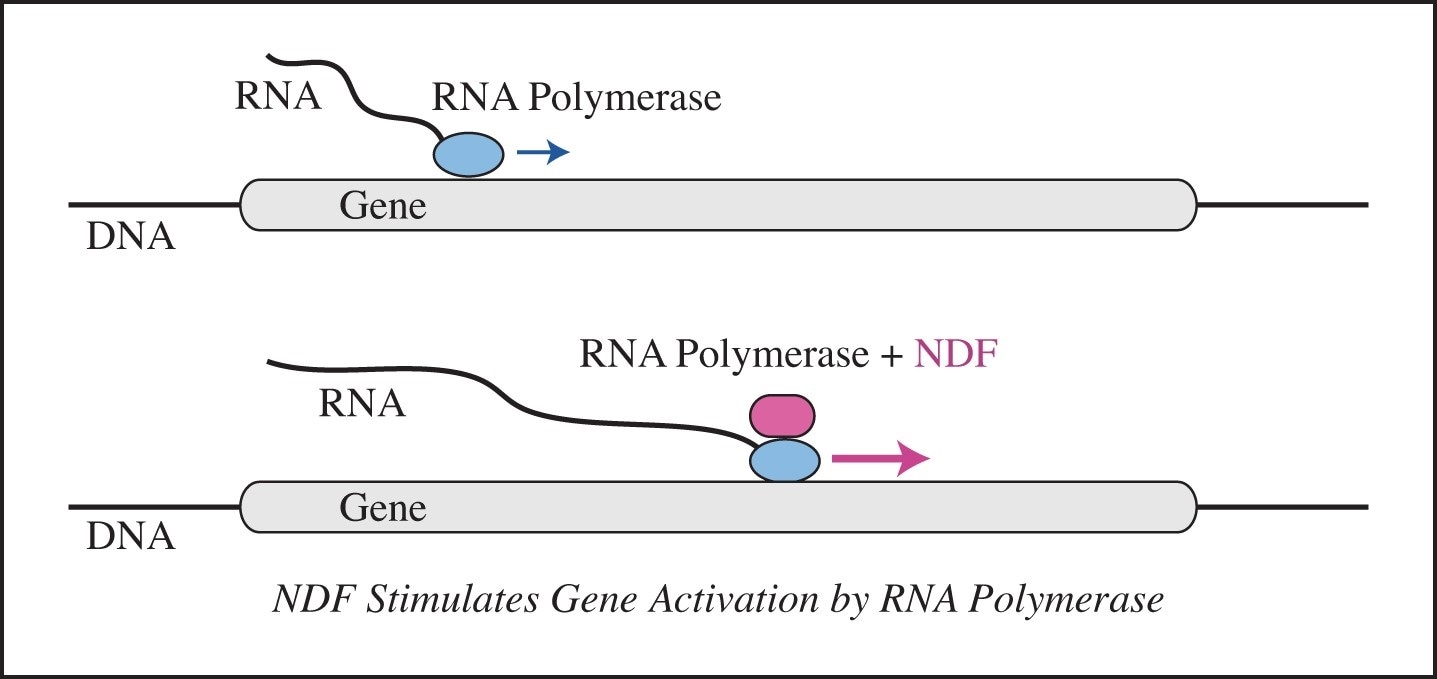Researchers are attempting to figure out what happens when our genes are switched “on,” for many years. However, a research team from the University of California San Diego, and Rutgers University have now discovered a novel protein that plays a role in this crucial process.

Scientists at UC San Diego and Rutgers University have found intriguing new details about a previously missing critical factor in gene expression. An ancient protein called NDF found in all human tissues enhances gene activation and may be involved in diseases such as cancer. Image Credit: University of California San Diego
Genes function as master copies of data in the six-foot-long molecular chain of commands known as DNA, in each one of human cells. An enzyme, called RNA polymerase, synthesizes an RNA copy of the DNA in our genes during gene activation.
Animal RNA polymerases were found more than 50 years ago, while the majority of proteins that regulate RNA polymerase activity were detected more than 20 years ago. As a result, it was assumed that all of the important factors that influence gene activation were previously recognized.
Jia Fei, a former UC San Diego postdoctoral researcher who is now an assistant professor at Rutgers University, and James T. Kadonaga, a UC San Diego professor, have recently revised this theory. By unraveling nucleosomes, which are DNA modules inside cells, Fei and Kadonaga uncovered a protein named NDF (nucleosome destabilizing factor), which they found played a crucial role in gene activation.
Fei, Kadonaga, and the team found that NDF not only unfolds nucleosomes but also turbocharges RNA polymerase as it passes through the DNA in their new research. Fei and Kadonaga investigated further and discovered that NDF binds directly to RNA polymerase and enhances the enzyme’s capacity to produce RNA.
They also discovered that NDF is prevalent in a wide spectrum of organisms, from simple baker’s yeast to humans. NDF is an old and widely distributed protein that promotes RNA polymerase elongation, a critical stage in gene expression, according to this research.
The new results are published on March 10th, 2022, in the journal Genes & Development.
In humans, NDF is present in all tissues, which suggests that it has a broad and important role in our biology. Consistent with this notion, abnormally high NDF levels, which might lead to the hyperactivation of genes, are often found in breast cancer cells.”
Kadonaga, Distinguished Professor, Molecular Biology, University of California San Diego
In addition, Kadonaga held the Amylin Endowed Chair in Lifesciences Education and Research. He also mentioned how remarkable it is that a single protein can both destabilize nucleosomes and enhance RNA polymerase elongation. These findings suggest that much more research into this new gene-activating protein is required.
Source:
Journal reference:
Fei, J., et al. (2022) NDF is a transcription factor that stimulates elongation by RNA polymerase II. Genes & Development. doi.org/10.1101/gad.349150.121.